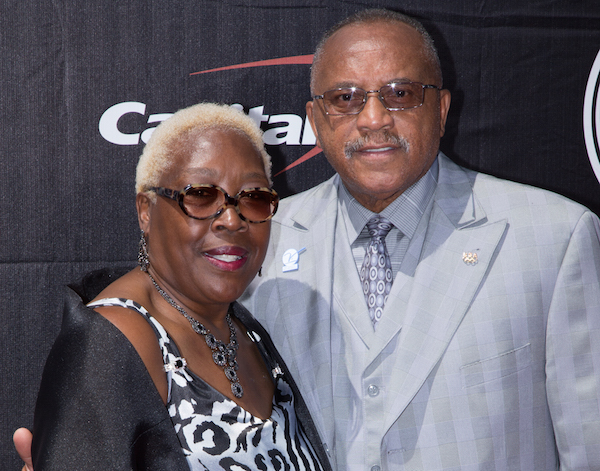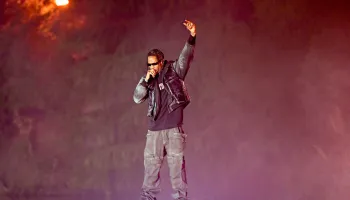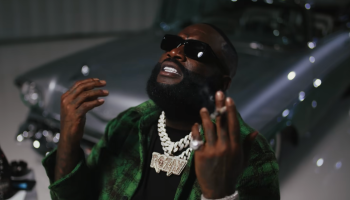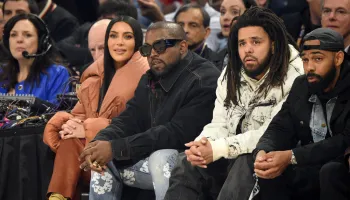Between the divisive partisan politics of the current election cycle and the downward spiral of the 24-hour news cycle, narratives shining a light on excellence are in short supply. The 17-days of international goodwill nurtured by the Olympic games in Rio are in desperate need.
Granted, the current situation in Brazil has produced some less than encouraging headlines. But if gymnasts from North and South Korea can be excited about taking selfies together, then there’s hope for the rest of us. Here’s a look back at some previous Olympic examples of #BlackExcellence that can be both a reminder of hope during particularly dark times and a predictor of things to come in Rio.
#BlackExcellence in the Olympics has a long legacy. Check out the Streampix premiere, Olympic Pride, American Prejudice. It’s the untold story of 18 Black athletes in the 1936 Olympic Games. XFINITY X1 will change the way you experience TV.
John Carlos & Tommie Smith
Among the many goals for the Olympic games listed in the International Olympic Committee’s charter, you can find the Fundamental Principles of Olympism. The second of these seven principles is “to place sport at the service of the harmonious development of humankind, with a view to promoting a peaceful society concerned with the preservation of human dignity.”
This begs an obvious question. What do Olympians do when their country lacks harmonious development and doesn’t seem to preserve their human dignity? In the case of John Carlos and Tommie Smith, the answer is to raise awareness by removing your shoes and raising a fist.
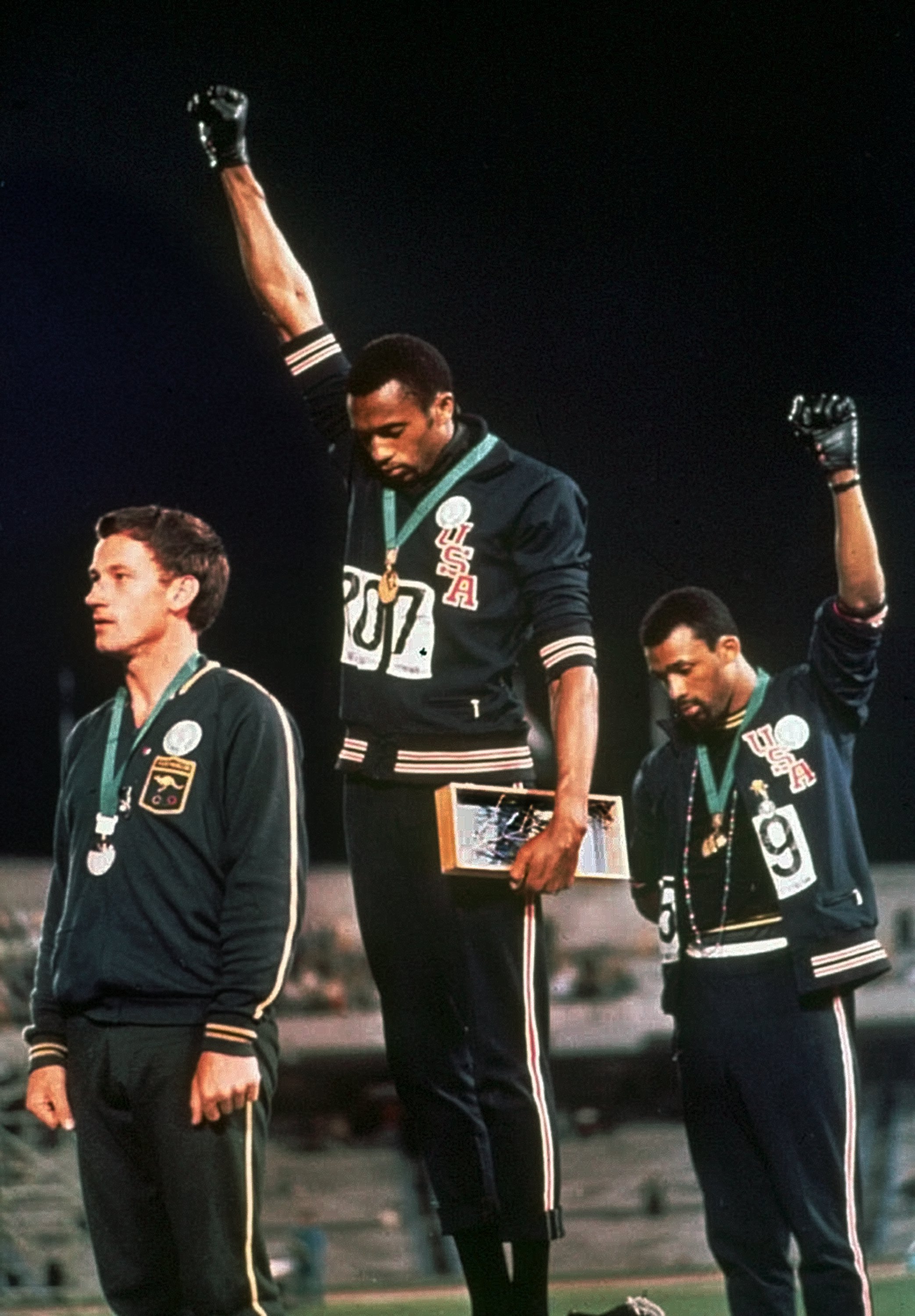
Extending gloved hands skyward in racial protest, U.S. athletes Tommie Smith, center, and John Carlos stare downward during the playing of the Star Spangled Banner after Smith received the gold and Carlos the bronze for the 200 meter run at the Summer Olympic Games in Mexico City on Oct. 16, 1968. Australian silver medalist Peter Norman is at left. (AP Photo)
Tommie Smith won the gold medal in the 1968 Olympic Games with a time of 19.83 seconds in the 200-meter sprint. Smith’s record currently ranks as a tie for the twenty-first fastest 200-meter time ever recorded. John Carlos was no slouch himself, and he took the bronze medal with a time of 20.10 seconds.
Yet, as men who were at one point regarded as two of the fastest humans on the planet in their respective event, what they did on the track in Mexico City paled in comparison to their actions atop the medal podium. Since the Mexico City games marked the first live telecast of the Olympics, there was no tape delay to prevent Smith and Carlos from making a global statement.
“It was the Olympic Project for Human Rights and not civil rights,” Smith relayed during a 2016 interview with Killer Mike. “When we got back to the United States, it became civil. We had already told the world, ‘You need more love. Love is the key to existence. Why can’t you love your neighbor as yourself?’”
Smith, Carlos, and silver medal winner Peter Norman of Australia all donned the Olympic Project for Human Rights badge. The domestic struggle for civil rights fell under the umbrella of global human rights initiatives such as ending Apartheid in South Africa, ending colonialism of Rhodesia, and standing in solidarity with poor people around the globe.
While Smith and Carlos faced an incredible backlash in the immediate aftermath of the 1968 games, the legacy of their actions has been viewed in more of a proper context in recent years. As it should. What is more symbolic of excellence and what the Olympics represent than taking a stand for human rights on a global scale? Follow today’s Olympians with the X1 Sports app. Turn your TV into a scoreboard. Track multiple games at once and check the latest scores and standings.
